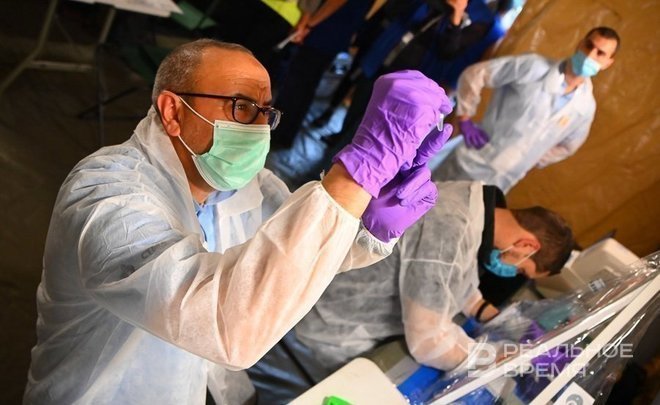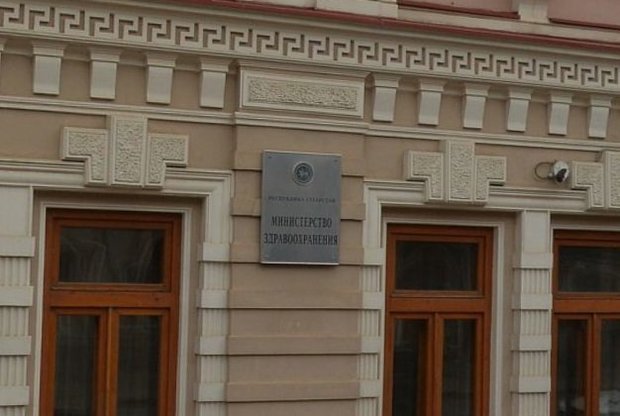There is nothing to analyse with: there are interruptions with reagents in the laboratories of Tatarstan
Medical community explains the shortage of consumables for tests by the influx of patients, and merchants stock up on them for the future in anticipation of a shortage

There are problems with providing laboratories with reagents in medical institutions of Tatarstan This was reported to Realnoe Vremya by patients who were unable to timely donate blood for tests for free under the OMI policy, despite having a referral from a doctor. As it turned out, this problem is throughout Russia, and interruptions in the supply of reagents have been occurring for several years. Realnoe Vremya — about the shortage of reagents for laboratory research, the measures taken by the republican ministry of healthcare to overcome it, and the prospect of switching state medical institutions to Chinese equipment.
“This 'isolated' case is not an isolated one!”
“On November 8, in a new outpatient clinic in Kuyuki, blood sampling for tests was cancelled due to the lack of reagents," a resident of the village told Realnoe Vremya. “In the local chat, we were warned about this, so that we wouldn't go in vain, thank you for that, of course. But after all, such a story repeats itself almost every month, this is not an isolated case! Diagnostic tests are very often cancelled due to a lack of tuberculin for Mantoux and diaskintests. But sometimes it is necessary to pass tests urgently: someone needs to go to the hospital, someone needs to be prescribed treatment. But it turns out that for what we are entitled to under the OMI policy, we go to a paid laboratory. But at current prices for everything — from groceries to transportation and utilities — many have every penny on their account!”
Messages from the outpatient clinic about the cancellation of diagnostic tests regularly appear in the local chat: “There will be no Mantoux reaction from 14.11.2022. There are no vaccines”, "09.01.2022 There are no Mantoux and diaskin”, "20.02.2023 There will be no Mantoux and diaskin”, "13.03.2023 Mantoux and diaskin will not be carried out”, "15.09.2023 there will be no pediatrician. There will be no Mantoux”, “there will be no pediatrician on 19.09.2023. There will be no Mantoux”, “there will be no pediatrician on 22.09.2023. There will be no mantoux.”..
“Now we are taking blood for analysis, there are reagents in the CRH, and this problem is not acute at all," the head of the outpatient clinic, Landysh Kadyrova, assured the publication. “Besides, we don't do the tests ourselves, because we don't have a laboratory. We only carry out blood sampling — all tests are performed in the Pestrechinskaya CRH. And the case you are talking about is an isolated one, and then there was no blood collection for just a day or two.”
I couldn't say anything about the reasons for the lack of reagents in the dispensary — I forwarded the questions to the CRH.
“There is no shortage for a long time”
“We have a safe situation with reagents," Lyasan Kurbanova, the deputy chief physician of the Pestrechinskaya CRH for outpatient work, assured Realnoe Vremya. “I'm even surprised by the complaints. And such that all reagents run out, in principle, can not be. But it happens that one of the measurements is missing for a short time.”
According to her, reagents are delivered to the CRH laboratory once every three months, in uniform batches, and are consumed unevenly:
“Some reagents are consumed more in one month, less in another, and it may turn out that some of them have run out. Out of 50 indicators, there may not be one or two, and then this problem is solved quickly, in a day or two. And for the deficit to happen for a long time — this does not happen!”
Laysan Kurbanova recalled only one prolonged case of shortage:
“Once, for about a week, we did not have quotas for hepatitis B and hepatitis C. It was not about reagents, since we do not do these tests ourselves, but about quotas for research — they ran out. But now there are quotas for them, there are also reagents for blood biochemistry and for urine tests — everything works as usual.
At the same time, the interlocutor of the publication noted, the Pestrechinsky district is special in the sense that its population is growing rapidly:
“If last year we had 30 thousand of the attached population, this year it has already exceeded 40. Besides those who are registered on our territory, attached to our outpatient clinic, there are those who are not attached, but we provide them with assistance.”
Realnoe Vremya appealed to the Tatarstan Ministry of Healthcare with a request about the reasons for the shortage of reagents and the measures that are being taken to eliminate the shortage.

“State medical institutions are provided with reagents for laboratory tests on a planned basis, the volumes are calculated in advance," Tatarstan Ministry of Healthcare commented on the situation to Realnoe Vremya. “Information about cases of suspension of clinical tests in state medical institutions of Tatarstan due to the lack of reagents is not confirmed. To ensure the smooth operation of the laboratory service of medical institutions at the beginning of January next year, the procedure for purchasing reagents has already begun this month. This work is being carried out as planned, we hope that there will be no failures.”
All hope for China?
However, there is a shortage of reagents in Russia, and it arose more than a year ago — the media wrote about patients' complaints about the impossibility to pass tests due to a shortage of reagents in the Moscow region, as well as in other regions, in the spring of last year. Then it was reported about the termination of supplies by Radiometer, Thermo Fisher, Beckman Coulter, Immuco, about the lack of reagents for DNA sequencing and analysis, blood clotting tests, for qualitative analysis of bacteria and yeast from the blood.
The deficit was associated with anti-Russian sanctions. The problem was solved by changing the “sanctioned” German equipment to Chinese, for which there are always spare parts and consumables.
In February 2023, Roszdravnadzor issued an order that, from September 1, it is allowed to repair foreign medical equipment with non-original spare parts — we read “Chinese”, because it is in China where the bulk of the most diverse non-original, but quite working and, importantly, cheap spare parts are produced. This was done in order to reduce the risks of “further sanctions pressure”.
Store is no sore
Meanwhile, Kazan commercial diagnostic laboratories assure that the issue of a shortage of reagents is not on their agenda.

Gizatullina confirmed that some reagents are currently not on the market, but there is a way out:
“We have equipment for rent. And in such cases we change it — we change the supplier of the equipment, we attract the manufacturer whose reagents are on the market.”
“Are you switching to Chinese analysers?"
“No, we are trying to find another replacement. Now we are switching to Roche (Roche Diagnostics is a German manufacturer of diagnostic equipment — editor's note), their devices and reagents are present on our market. Analysers and reagents Beckman Coulter, Abbott (manufactured in the US — ed.) are also available, and we work with them.